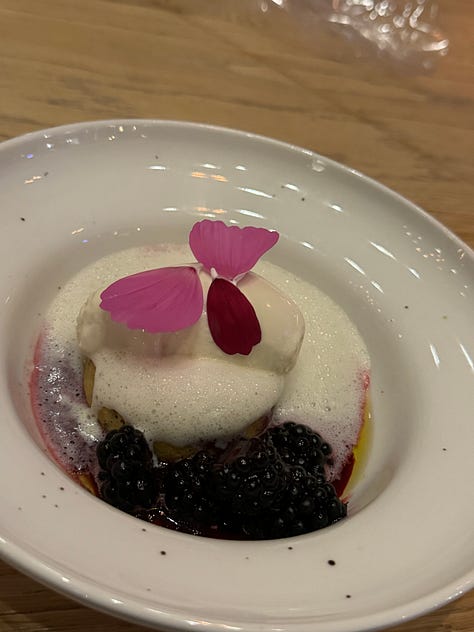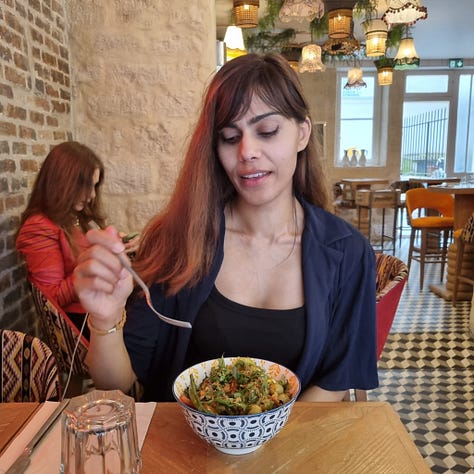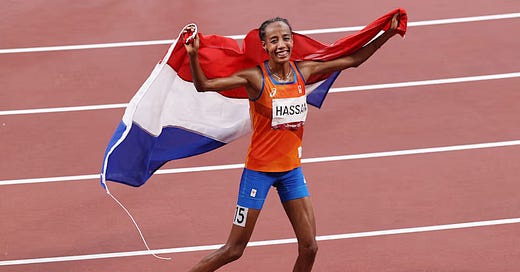Why Intersectional Feminism is the Only Feminism That Matters, Essential Reads, and Insights
Observations, trends, and personal stories by a Femmelennial – that's what you'll find here📖
Hello readers, welcome to my newsletter! I hope you enjoyed your summer holidays, I definitely did! a deeply personal and powerful book by Tsitsi Dangaremba, the acclaimed Zimbabwean author, filmmaker, and activist. In it, she explores the challenges of being both Black and a woman in a world that often doesn't make it easy. I’m excited to share my thoughts on this insightful work and why it’s such an essential read.
Furthermore, the book inspired me to write about Intersectional Feminism, and why whit is the only feminism that matters. Curious to know what I am talking about?
I hope you will enjoy this newsletter. Please share your thoughts and experiences in the comments below!
Bisous!
Mekky
Why Intersectional Feminism is the Only Feminism That Matters
FEMMELENNIAL BLOG
Intersectionality—a term I first encountered as a student in a lecture hall. It was introduced in the context of qualitative research, where categorizing study populations is a common practice. Typically, people are grouped by age, gender, or race, but these categories don’t exist in isolation. Each of us occupies multiple categories simultaneously, and it’s at the intersection of these identities that our unique experiences emerge. Imagine drawing a virtual box where all these different categories overlap—that’s where an individual’s true identity can be found.
This lecture was meant to make us aware of the complexity of trying to put people in specific categories. And recently as I got more interested in feminism, I find myself pondering the ways in which these intersecting identities shape our experiences.
What is Intersectional Feminism?
At its core, feminism is about gender equality. But to focus solely on gender, without considering the other aspects of our identities misses the point. And this is where intersectional feminism comes in. Intersectional feminism acknowledges that the struggles faced by women are not universal. They vary depending on how other aspects of identity intersect with gender. For example, a black women, a disabled woman, and a queer woman may face different forms of oppression that cannot be addressed by a one-size-fits-all approach to feminism.
This term was first introduced in 1989 by Kimberlé Crenshaw, a pioneering scholar and black feminist. However, I came across this concept when I read Black and Female by Tsitsi Dangaremba. In this powerful book, Dangaremba sheds light on the challenges faced by black women, particularly in the context of post-colonial Africa. Her experiences are not only influenced by her gender, but also by her race and the cultural expectations. Her story serves as a strong reminder that the fight for gender equality cannot be separated from the fights against racisms, colonialism, and other forms of oppressions.
The Olympic Games 2024: A Recent Example
A recent example that highlights the importance of intersectional feminism is the controversy surrounding the participation of French veiled women in the 2024 Olympics. Ironically, while women in the past have fought for the right to show more of their skin, today women must fight for the right to cover themselves. In these Olympics, French women wearing veils were not allowed to participate in athletics. This issue was not widely recognised as an example of gender inequality. Because the truth is, we only recognise inequality when it relates to our cultural and societal beliefs. You may remember the protests after the death of Mahsa Amani in Iran. This was a beautiful example of worldwide women’s support and feminism. But where does this feminism go when the fight becomes against cultural norms and values within the category in which we belong?
This example underscores how far we still have to go in understanding that in order to achieve gender equality we must equally acknowledge and embrace the diversity among women. Interestingly, Dutch-Ethiopian athlete Sifan Hassan won gold and received her trophies, while wearing her veil. This victory was therefore not just a triumph in athletics, but also a powerful statement highlighting why intersectional feminism matters.
My Conclusion
Whether fighting to show more or less of our skin, the essence of the struggle remains the same: The believe by some that they have the right to dictate what women should wear. This is not feminism. True feminism supports a woman’s right to make choices about her body, free from societal or governmental forces. The case of veiled women in the Olympics is a clear example of why intersectional feminism is necessary. Because it is never only about gender. It is about understanding the systems that oppress women in all their diversity.
Reflecting back on that lecture hall, I now understand that intersectionality is not just a framework for academic practices. It’s a vital tool for understanding the complexities of oppression, including that of women. And intersectional feminism is the only feminism that matters because it recognises women in all their varied experiences, and underscores that gender equality can only be achieved when this diversity is fully embraced.
FEMMELENNIAL - FOOD AND DRINKS
Restaurant De Kas, Amsterdam. My colleagues and I wanted to treat a dear colleague who recently retired to a special dinner, and De Kas seemed like the perfect choice. It had been on my list for a long time, and I’m glad we finally got to experience it. The evening exceeded our expectations. De Kas is a chic restaurant set in a stunning glass building, offering Mediterranean dishes crafted from organic ingredients grown right on-site. The menu changes weekly, so each course was a delightful surprise. We enjoyed a five-course meal, and the quality of the ingredients was truly astonishing.Keep in mind, De Kas is not a budget-friendly option, but it’s perfect for special occasions.









Peruvian restaurant ‘Yora’, Paris. Yora is a budget-friendly Peruvian poke bowl spot in the 17th arrondissement, offering fresh ingredients to customise your own bowl. The restaurant features stylish decor and friendly staff, making it perfect for a quick lunch or a spontaneous catch-up.



Please share your feedback and comments, I would love to hear your thoughts about my newsletter.
Lots of Love,
Mekky



